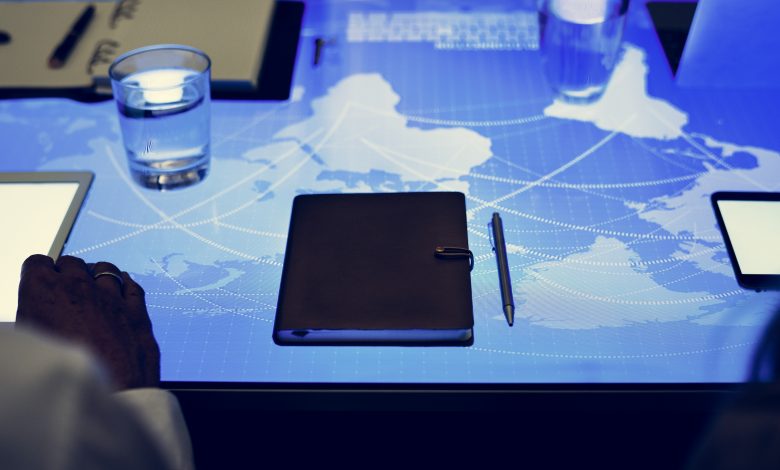
“Davos 2021”.. Steps on the road to recovery and stimulus in a critical year
منتدى دافوس الاقتصادي .. خطوات على طريق التعافي والتحفيز في عام حاسم
QNA
Doha: Under the theme “A Critical Year for Rebuilding Trust”, the Davos World Economic Forum, which is being held this year “remotely” due to the Corona pandemic, will kick off and run through Friday.
The forum will hold more than 100 sessions and workshops with the participation of a large number of world leaders to address contemporary economic, environmental, social and technological challenges, especially in light of the repercussions of the Corona pandemic.
Participants will focus on ways and means to create impact, rebuild trust and shape the necessary policies and partnerships during 2021.
The forum’s agenda includes five themes: designing coherent, flexible and sustainable economic systems, leading transformation and responsible industrial growth, strengthening supervision of global resources and commons, harnessing the techniques of the Fourth Industrial Revolution, and promoting global and regional cooperation. Participants will listen to special speeches from G20 heads of state, governments and international organizations that will highlight a number of important issues in the new year, and learn first-hand about the plans and projects of these figures to stimulate work in areas such as the environment, jobs and advance the innovation brought about by the Fourth Industrial Revolution.
Several heads of state and government are participating in the meeting, including Chinese President Xi Jinping, French President Emmanuel Macron, German Chancellor Angela Merkel, Italian Prime Minister Giuseppe Conti, Indian Prime Minister Narendra Modi and Prime Minister Yoshihide Suga of Japan, and U.S. President Joe Biden will not appear at the Davos summit, but will send John Kerry, the special envoy for climate affairs who is expected to be particularly welcomed after The Democratic President of Washington returns to the Paris climate agreement.
Leaders of international organizations, central banks, UN Secretary-General António Guterres and more than 1,000 private sector leaders are also participating in the forum.
The participation of civil society leaders and representatives is key and critical in shaping the Davos agenda, and more than 10,000 young leaders from representatives of civil institutions and communities will join as members of the Forum’s “World Formers” community, the youth community of global leaders, technology leaders and social entrepreneurs, and will present new solutions and perspectives to the Davos agenda.
Professor Klaus Schwab, founder and CEO of the World Economic Forum, said that with the Covid-19 pandemic, there is an increased need to realign priorities and reform systems around the world.
Rebuilding trust and increasing global cooperation are key to finding innovative and bold solutions that will stop the epidemic and drive recovery strongly, Schwab said, stressing that this unique meeting represents an opportunity for leaders to identify their visions and address the most important issues of our time, such as the need to accelerate job creation and protect the environment.
He explained that the Covid-19 pandemic showed that no institution or individual can meet the economic, environmental, social and technological challenges of our complex and interconnected world individually.
In a recent statement issued by the Forum, world leaders called for cooperation to be the new compass that manages international relations, and the Forum’s Global Working Group, which includes senior members of governments, corporations, civil society and the expert community, has developed seven principles that will strengthen global cooperation.
The seven principles call for prioritizing peace and security, gender equality, sustainability, equitable re-globalization, deepening public-private partnerships and increasing global resilience. The Group stressed that all these principles are necessary for global cooperation, and progress thanks to it, and their absence can cause deep rifts.
A new World Economic Forum survey shows that most adults are optimistic about access to technology, digital tools and training over the next 12 months, but have serious concerns about the state of the climate, global labour market and health, and these findings highlight the importance of leaders across the public and private sectors coming together to address the changes required in a crucial year ahead.
The forum’s founder, Professor Schwab, will launch his new book, Social Capitalism: A Global Economy Working for Progress, People and the Planet, which deals with how societies can build a post-pandemic future, builds on the Forum’s 50-year-old call for social capitalism, will release the annual version of Global Risk Report 2021. The Davos agenda will also see the launch of several initiatives, including initiatives to accelerate work to reach zero emissions, new standards of racial justice, and a digital divide initiative.
In May, the Davos Forum will move to Singapore, away from the luxury Swiss winter resort, where it has been held since it was founded by German professor Klaus Schwab in 1971, and the stated reason for its transfer is related to health concerns.
قنا
الدوحة: تحت عنوان “عام حاسم لإعادة بناء الثقة”، تنطلق غدا الإثنين، فعاليات منتدى دافوس الاقتصادي العالمي، الذي يعقد هذه السنة “عن بعد” بسبب جائحة كورونا ويستمر حتى الجمعة.
ويعقد المنتدى أكثر من مئة جلسة وورشة عمل بمشاركة عدد كبير من أبرز قادة العالم لمواجهة التحديات الاقتصادية والبيئية والاجتماعية والتكنولوجية المعاصرة خاصة في ظل تداعيات جائحة كورونا.
وسيركز المشاركون على الوسائل والطرق الكفيلة بخلق التأثير وإعادة بناء الثقة وتشكيل السياسات والشراكات اللازمة خلال عام 2021.
وتتضمن أجندة المنتدى خمسة محاور هي: تصميم أنظمة اقتصادية متماسكة ومرنة ومستدامة، و قيادة التحول والنمو الصناعي المسؤول، و تعزيز الإشراف على الموارد والمشاعات العالمية، وتسخير تقنيات الثورة الصناعية الرابعة، والنهوض بالتعاون العالمي والإقليمي.. وسيستمع المشاركون لخطابات وكلمات خاصة من رؤساء دول مجموعة العشرين والحكومات والمنظمات الدولية، من شأنها تسليط الضوء على عدد من القضايا الهامة خلال العام الجديد، والتعرف بشكل مباشر على خطط ومشاريع هذه الشخصيات لتحفيز العمل بمجالات مثل البيئة والوظائف والتقدم بالابتكار الذي جلبته الثورة الصناعية الرابعة.
ويشارك بالاجتماع العديد من رؤساء الدول والحكومات، منهم: الرئيس الصيني شي جين بينغ، والرئيس الفرنسي إيمانويل ماكرون، والمستشارة الألمانية أنجيلا ميركل، وجوزيبي كونتي رئيس وزراء إيطاليا، وناريندرا مودي، رئيس وزراء الهند، ويوشيهيدي سوجا، رئيس وزراء اليابان، ولن يظهر الرئيس الأمريكي جو بايدن بقمة دافوس، لكنه سيوفد جون كيري، الموفد الخاص لشؤون المناخ الذي ينتظر أن يلقى ترحيبا خاصاً بعد إعادة الرئيس الديمقراطي واشنطن إلى اتفاق باريس للمناخ.
كما يشارك بالمنتدى عدد من قادة المنظمات الدولية والبنوك المركزية، والأمين العام للأمم المتحدة أنطونيو غوتيريش، وأكثر من 1,000 من قادة القطاع الخاص.
وتعتبر مشاركة قادة المجتمع المدني وممثليه أساسية وحاسمة في تشكيل أجندة دافوس، وسينضم للمنتدى أكثر من عشرة آلاف من القادة الشباب من ممثلي المؤسسات والمجتمعات المدنية كأعضاء بمجتمع “مشكلو العالم ” التابع للمنتدى، ومجتمع القادة العالميين الشباب، ورواد التكنولوجيا، ورواد الأعمال الاجتماعية، وسيقدم هؤلاء الشباب حلولا ووجهات نظر جديدة لأجندة دافوس.
وفي هذا الإطار، قال البروفيسور كلاوس شواب، المؤسس والرئيس التنفيذي للمنتدى الاقتصادي العالمي، إنه مع جائحة /كوفيد- 19/، زادت الحاجة لإعادة ضبط الأولويات وإصلاح الأنظمة بمختلف أنحاء العالم.
وأضاف شواب أن إعادة بناء الثقة وزيادة التعاون العالمي أمران أساسيان لإيجاد حلول مبتكرة وجريئة من شأنها وقف الوباء ودفع عجلة الانتعاش بقوة، مؤكداً أن هذا الاجتماع الفريد يمثل فرصة للقادة لتحديد رؤاهم ومعالجة أهم القضايا في عصرنا، مثل الحاجة لتسريع خلق فرص العمل وحماية البيئة.
وأوضح أن جائحة /كوفيد-19/ أظهرت أنه لا يمكن لمؤسسة أو فرد مواجهة التحديات الاقتصادية والبيئية والاجتماعية والتكنولوجية لعالمنا المعقد والمترابط بشكل فردي.
وقد دعا قادة العالم في بيان أصدره المنتدى مؤخراً لأن يكون التعاون هو البوصلة الجديدة التي تدير العلاقات الدولية، وطورت مجموعة العمل العالمية التابعة للمنتدى، والتي تضم كبار أعضاء الحكومات والشركات والمجتمع المدني ومجتمع الخبراء، سبعة مبادئ من شأنها تعزيز التعاون العالمي.
وتدعو المبادئ السبعة إلى إعطاء الأولوية للسلام والأمن، والمساواة بين الجنسين، والاستدامة، وإعادة العولمة بإنصاف، وتعميق الشراكات بين القطاعين العام والخاص، وزيادة المرونة العالمية، وأكدت المجموعة أن جميع هذه المبادئ لازمة لتحقيق التعاون العالمي، وتتقدم بفضله، ويمكن أن يتسبب غيابها بحدوث تصدعات عميقة.
وقد أظهر استطلاع جديد للمنتدى الاقتصادي العالمي أن معظم البالغين متفائلون بشأن الوصول إلى التكنولوجيا والأدوات الرقمية والتدريب خلال الأشهر الـ 12 المقبلة، إلا أن لديهم مخاوف جدية بشأن حالة المناخ وسوق العمل العالمي والصحة، وتسلط هذه النتائج الضوء على أهمية اجتماع القادة عبر القطاعين العام والخاص معاً لمعالجة التغييرات المطلوبة في عام حاسم قادم.
وسيطلق مؤسس المنتدى البروفيسور شواب كتابه الجديد بعنوان “الرأسمالية الاجتماعية: اقتصاد عالمي يعمل من أجل التقدم والناس والكوكب”، ويتناول الكتاب كيفية تمكن المجتمعات من بناء مستقبل ما بعد الجائحة، ويبني على دعوة المنتدى الصادرة قبل خمسين عاماً لنهج الرأسمالية الاجتماعية، وسيصدر المنتدى النسخة السنوية من تقرير المخاطر العالمية 2021، ويحدد التقرير أولويات العمل بين القطاعين العام والخاص خلال العام الجديد، هذا وستشهد أجندة دافوس أيضا إطلاق العديد من المبادرات، ومنها مبادرات لتسريع العمل للوصول إلى انبعاثات صفرية، وسن معايير جديدة للعدالة العرقية، ومبادرة لسد الفجوة الرقمية.
وسينتقل منتدى دافوس خلال مايو المقبل إلى سنغافورة، بعيدا عن المنتجع الشتوي السويسري الفخم حيث استمر انعقاده منذ أسسه البروفسور الألماني كلاوس شواب عام 1971، والسبب المعلن وراء نقله يتعلق بالمخاوف الصحية.



